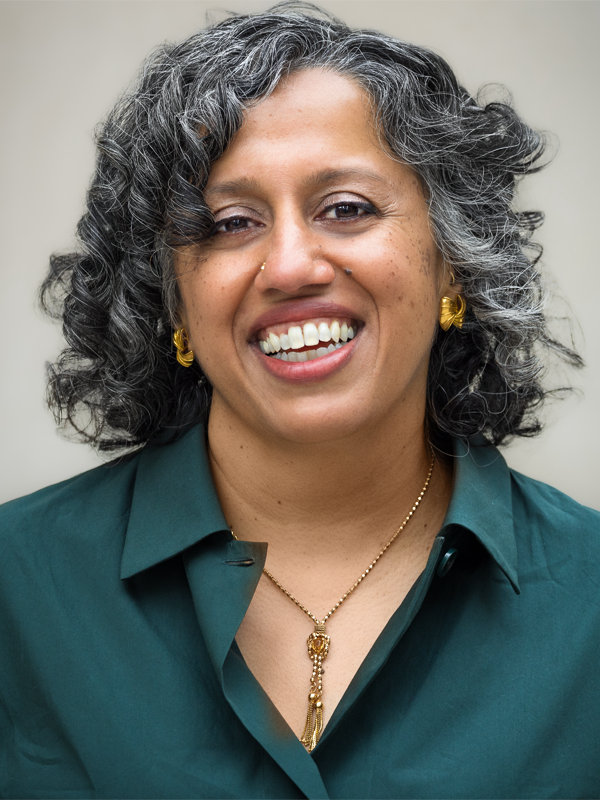Bakirathi Mani is the Penn Presidential Compact Professor of English at the University of Pennsylvania, where she is also faculty in the Asian American Studies Program and in the Gender, Sexuality, and Women’s Studies Program. Her recent book, Unseeing Empire: Photography, Representation, South Asian America (Duke University Press, 2020), examines how empire continues to haunt contemporary photographic representations of South Asians in America, shaping both aesthetic forms of racial self-representation as well as how diasporic viewers claim and identify with these images. Weaving ethnographic work together with her own experience as a curator, Mani examines the limits of visibility and visuality for Asian Americans. She is also the author of Aspiring to Home: South Asians in America (Stanford University Press, 2012). More recently, Mani has written on the circulation of photographs of anti-Asian violence during the COVID-19 pandemic, and photography's relation to imperial and settler-colonial archives in the U.S. and South Asia for Aperture, PIX, Brooklyn Rail, and other venues.
Bakirathi Mani
Wolf Humanities Center Penn Faculty Fellow
2024—2025 Forum on Keywords
Bakirathi Mani
Penn Presidential Compact Professor, Department of English
Diaspora, Race, and Representation in the Family Album Archive
This project investigates the keyword “diaspora” in relation to race and representation in the family album archive. Focusing on a collection of albums that map trajectories of South Asian migration between Asia and North America, the project investigates how family photographs operate as a visual and material text that reframes practices of racial self-representation, class mobility, and citizenship. As a paradigmatic object of diaspora, the images archived in family albums highlight everyday practices of curation and exhibition, and demand new methods for writing histories of South Asian migration. Bringing my disciplinary background in Asian American Studies and South Asian Studies together with scholarship in Black studies, my work with family albums expands how and where we see South Asian diasporas create narratives of identity and community.



